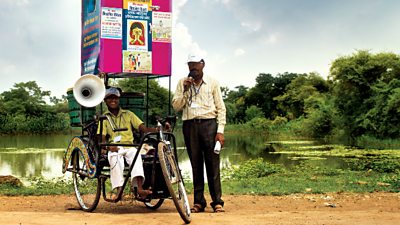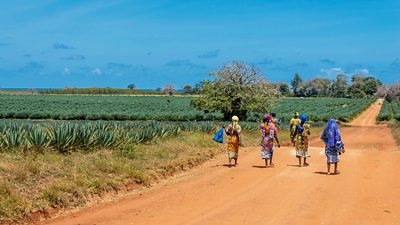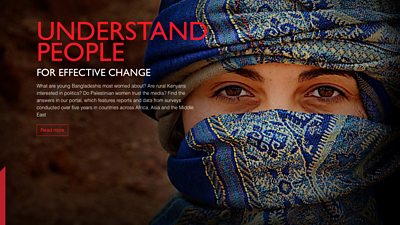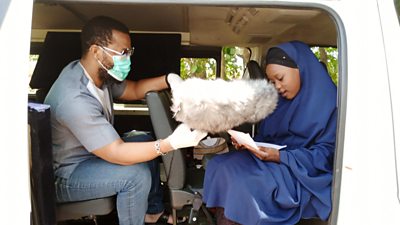Research summary
Publication: July 2023
����ý Media Action Nigeria produced and broadcast multimedia content (to provide accurate, practical and relevant information about COVID-19 vaccination for audiences and created space for family and community discussion. Thirty percent of people listened to/watched the content, which helped to dispel rumours, increase knowledge of the vaccine and drive people to go and be vaccinated.
Context
Since the first case of COVID-19 was identified in Nigeria in February 2020, government and health institutions have worked towards slowing down its spread. In a context where false information and myths about the vaccine, and concerns about hesitancy remain high. A by ����ý Media Action and World Health Organization carried out in March 2021 among men and women aged 18 years and over reported that a third of Nigerians surveyed (32%) were hesitant about the vaccine.
The project
Formative research insights showed that false and inaccurate information about COVID-19 and the vaccine exists among vaccinated and unvaccinated people. Findings suggest that these rumours promoting alternative cure/treatments for COVID-19 increase doubts about taking the vaccine because the other options are more easily understood.
The COVID-19: Addressing Vaccine Hesitancy in Nigeria (AVHiN) project, funded by Bill and Melinda Gates Foundation, set out to develop trusted multi-media content for a year, utilising factual discussion programmes Talk Your Own (TYO) in English/ Pidgin and Mu Tattauna (MTTN) in Hausa language, social media content for Facebook and Instagram, and radio public service announcements. The aim was to contribute to the reduction of vaccine hesitancy by fostering supportive attitudes towards COVID-19 vaccination among Nigerians and to enable more informed decision making regarding the vaccine
Research methodology
An evaluation of the project was conducted in November 2022 which included quantitative household survey of 3,814 males and females aged 18 years or older in urban and rural locations across 12 project focal states, using face-to-face Computer Assisted Personal Interview (CAPI) technique. Qualitative research was also conducted through focus group discussions(FGDs) with audiences of project outputs, aged 18 years or older, in urban and rural localities in six (of 12) project focal states. In-depth interviews (IDIs) were also conducted with health workers/experts engaged on the project and partner station staff that received training and production equipment. Descriptive and regression analysis controlling for sex, age, residence and income was used to show differences between regular listeners and non-listeners.
Key findings
The endline research shows that:
➢&�Բ�����; 30% of adults across the 12 project focal states listened to the factual radio programmes, radio PSAs or saw the social media content. Audiences reached were more male, rural and had higher education compared to people who didn’t listen.
➢&�Բ�����; People who listened to ����ý Media Action’s radio programmes regularly were better informed about COVID-19 vaccine than people who had not listened.
➢&�Բ�����; Listeners reported that they felt better able to tell the difference between rumours and facts, as well as to challenge them. Regression analysis controlling for confounding factors such as sex, age, education, location, income, status of vaccination, vaccine knowledge, showed that regular listeners were more likely to self-report higher level of confidence to identify and challenge mis/disinformation than non-regular listeners.
➢&�Բ�����; Respondents in FGDs were able to identify information around COVID-19 and its vaccine that they had seen which were false. However, when tested on some of the popular myths about the vaccine, listeners and non-listeners continue to believe in some myths or misconceptions.
- This is in a context where mis/disinformation and conspiracy theories about the vaccines are circulating in the Nigerian information space. Females and those with no education were more likely to believe a conspiracy as well as those from the poorest income category but there was no difference by age or urban/rural location.
➢&�Բ�����; Findings showed that audiences of ����ý Media Action’s programmes/content took action after listening. About a third said they went on to get vaccinated (32% TYO; 28% MTTN) and also encouraged others to do the same (23% TYO; 25% MTTN).
The research suggests that the training for media partners contributed to audience engagement with co-produced programmes - trainees reported that audience engagement through phone-calls and text messages increased after the training and audiences wanted to know more about COVID-19 generally.
Sincerely the program Mu tattauna has enlightened and educated us. They enlightened us on the nature of the vaccine and how it works”.
Key implications
• The radio programmes have been successful at driving positive perceptions and behaviours towards the COVID-19 vaccine, particularly for listeners who listen to the programmes regularly.
• There are still some information gaps on availability of the vaccine, dosage and access (where to get it from) and accurate facts regarding COVID19 and the vaccine.
• People are still believing rumours, around a quarter (24%) of Nigerians surveyed believe in one or more COVID-19 rumours or misconceptions; showing that there is still work to address rumours and misconceptions.
• Looking across indicators e.g. knowledge around the vaccine, for example, side-effects and having correct information about the vaccine, women are more likely to feel misinformed or lack information. Hence tailor-made interventions that engage and educate women are required to address this information deficit.
For further information, please contact ����ý Media Action’s Head of Research and Learning, Nigeria: anu.njamah@ng.bbcmediaaction.org.
Our research library
-

Long reads
Read our comprehensive research reports of the evidence behind our work. All of our publications are freely available to download. -

Short reads
At a glance, explore key findings and evidence behind our work. All of our publications are freely available to download. -

By country
Explore our findings and analysis country by country. All of our publications are freely available to download. -
 What are young Bangladeshi's most worried about? Are rural Kenyans interested in politics? Do Palestinian women trust the media? Find the answers in our data portal (last updated 2020).
What are young Bangladeshi's most worried about? Are rural Kenyans interested in politics? Do Palestinian women trust the media? Find the answers in our data portal (last updated 2020).
